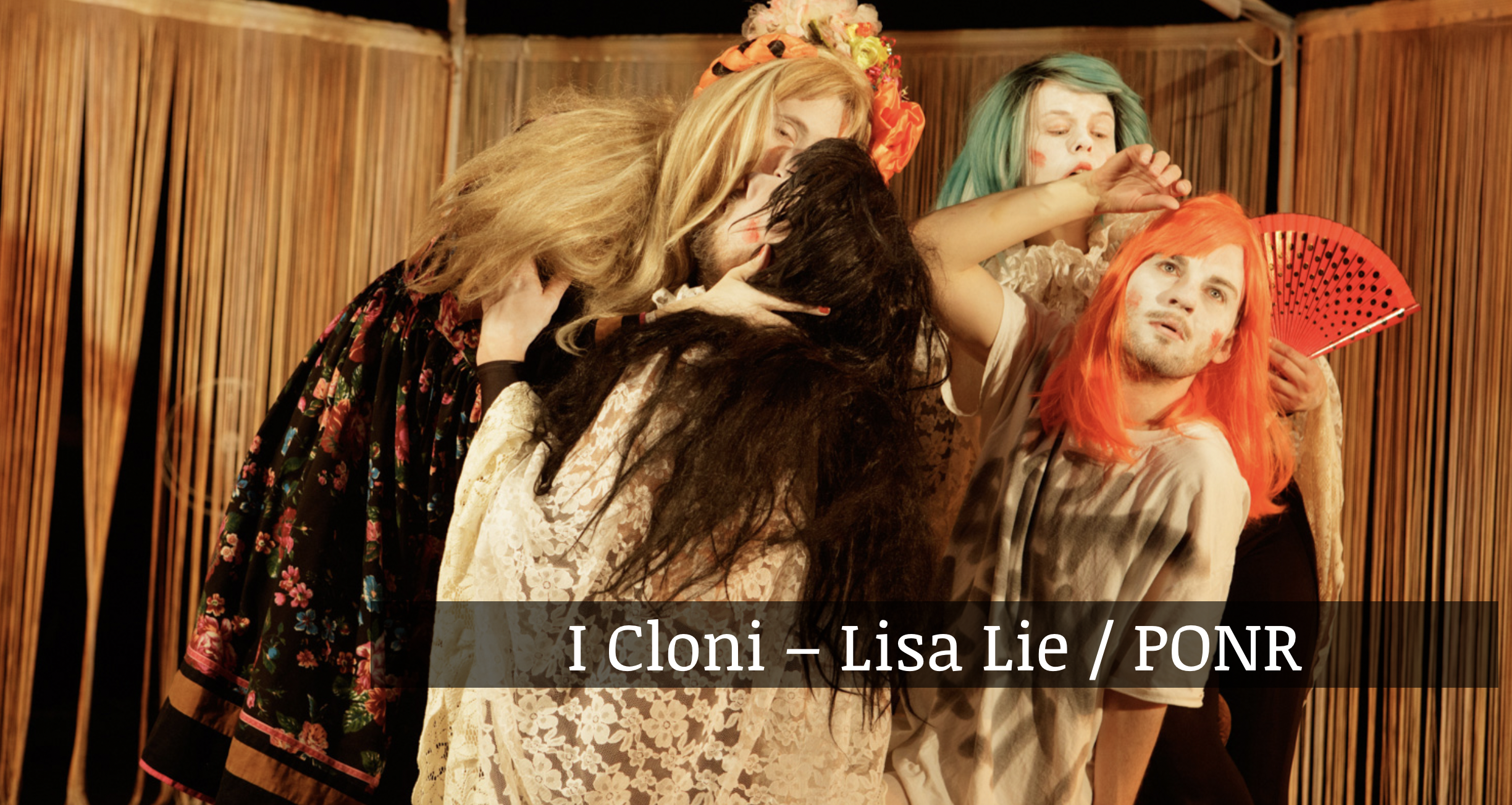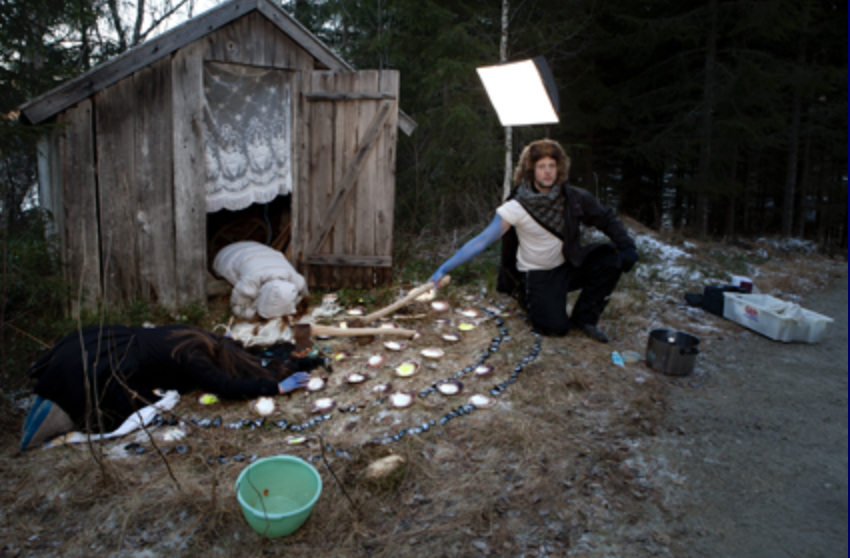Lisa Lie is an Oslo-based author, playwright, actress, director and performance artist. Pony of No Return (PONR) is a platform where Lie engage different artists according to need and interest.Lie draws upon choreographic and musical strategies for composition. Lie takes a holistic approach to text-based theater and performing arts, making dramaturgically multi-layered works in which a variety of narrative threads run simultaneously. A point of departure when creating a new piece is often the creative performer. Lie is concerned with recreating ties to a shared mythology and ritual practice, creating a different kind of compositional logic—akin to that of dreams and magical thinking, underlying the experience of the everyday. Lie has set up a number of plays at theaters in Norway and abroad, and her latest piece Vake is a mystical-theatrical line of events that unfolds for active participants. She has studied at the Norwegian Theatre Academy, Fredrikstad; the Iceland University of the Arts, Reykjavik; and the Stockholm Academy of Dramatic Arts. Moreover, Lie has published poems, novels, and scripts, and in 2015 she received Heddaprisen for her concept, text, and direction of Blue Motel
Ivar Furre Aam performed and co-created the works Blue Motell, Skogsunderholdning and I Cloni.

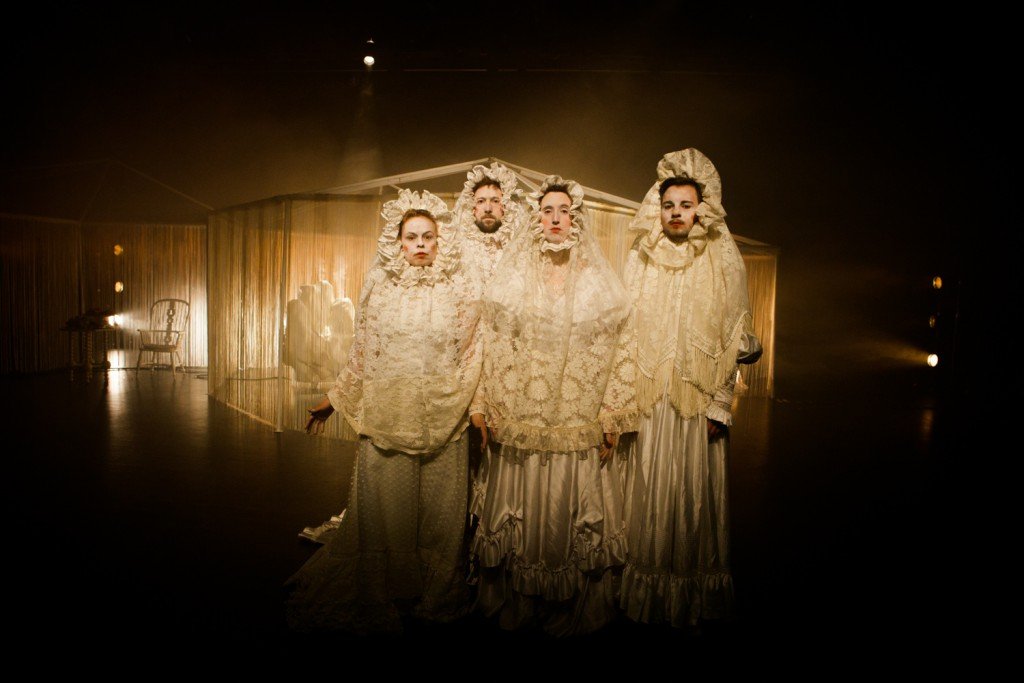


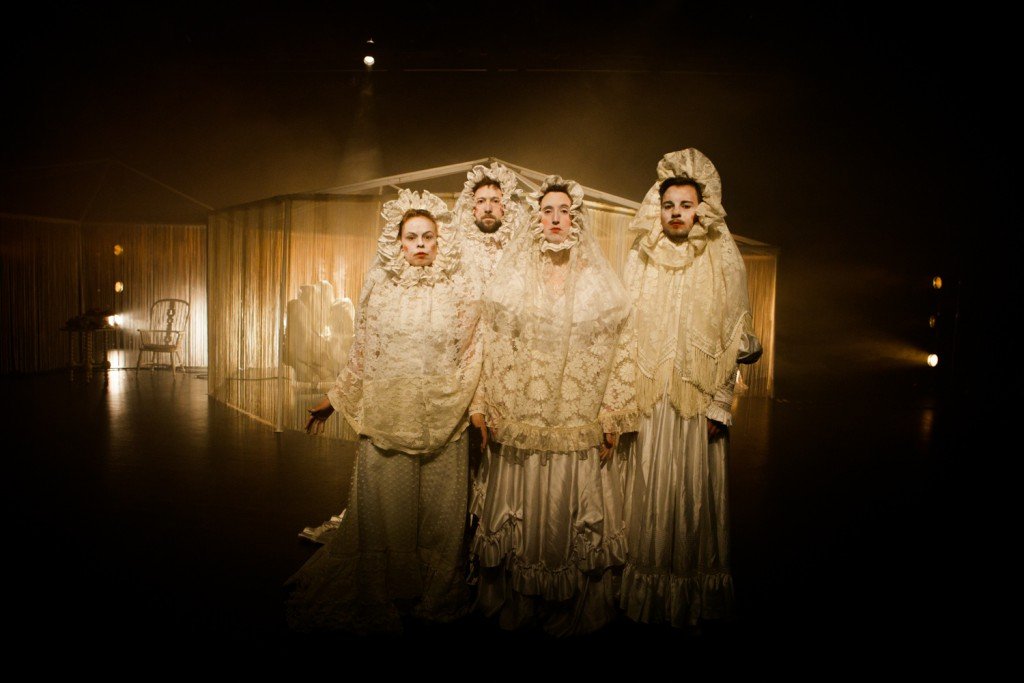

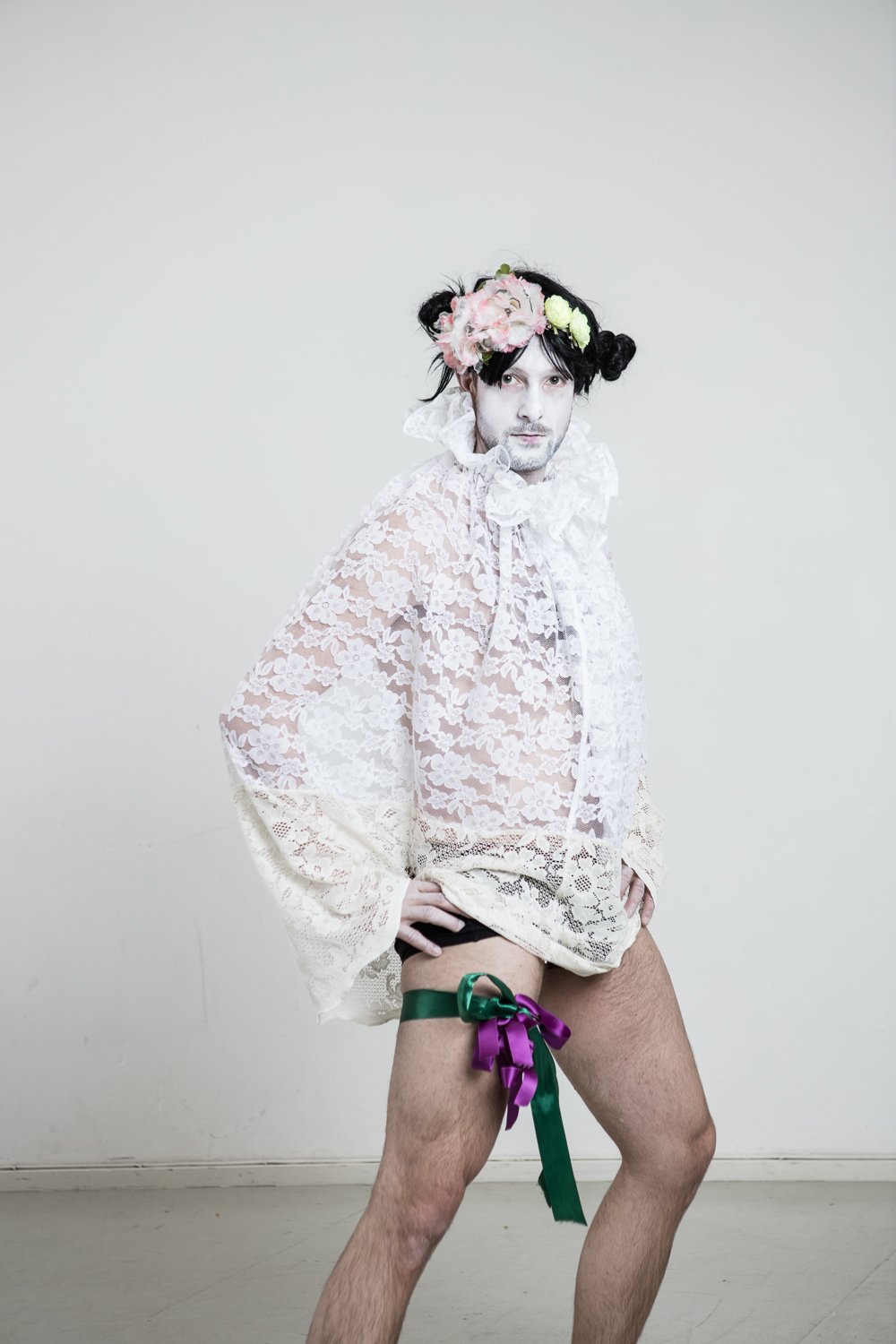
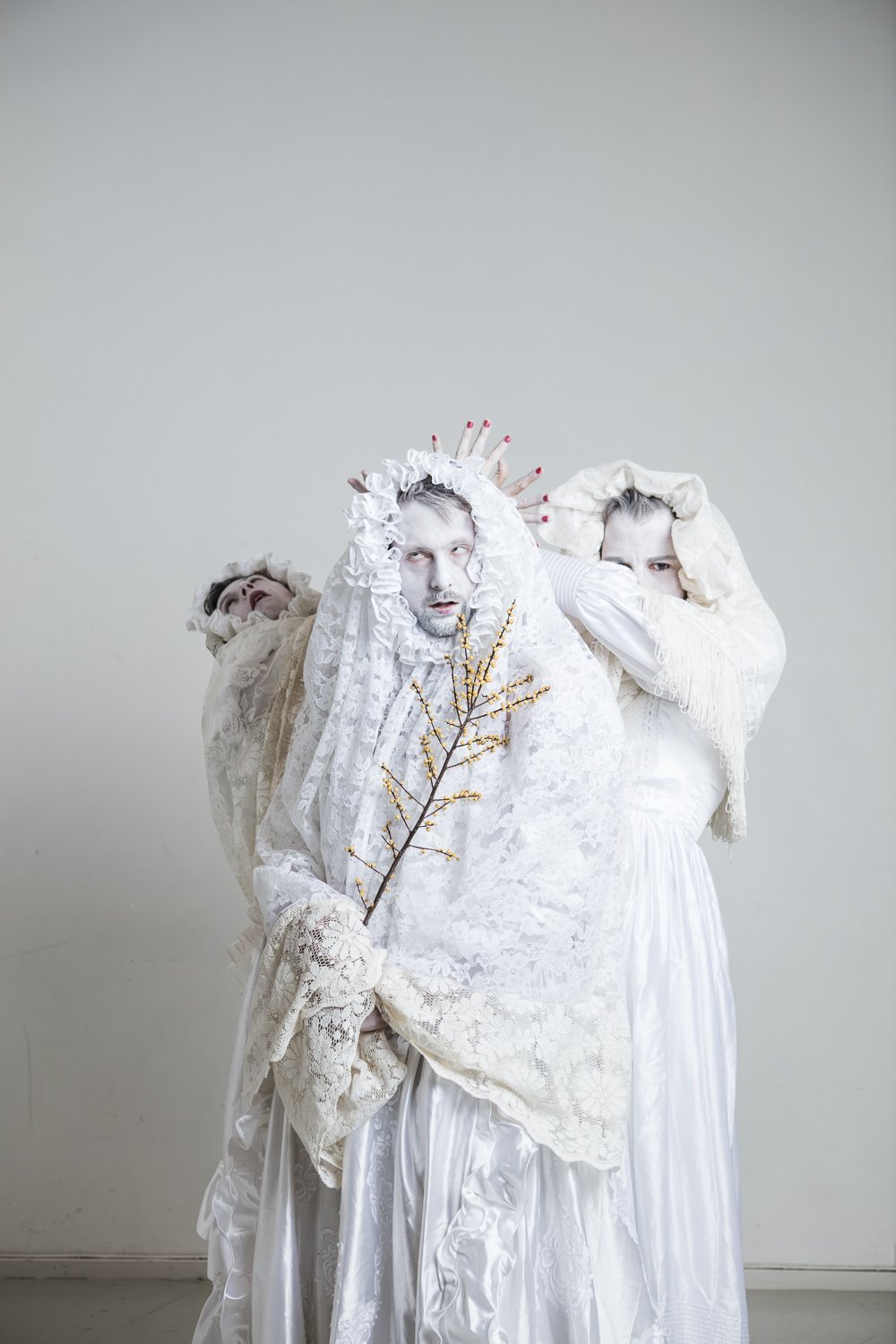
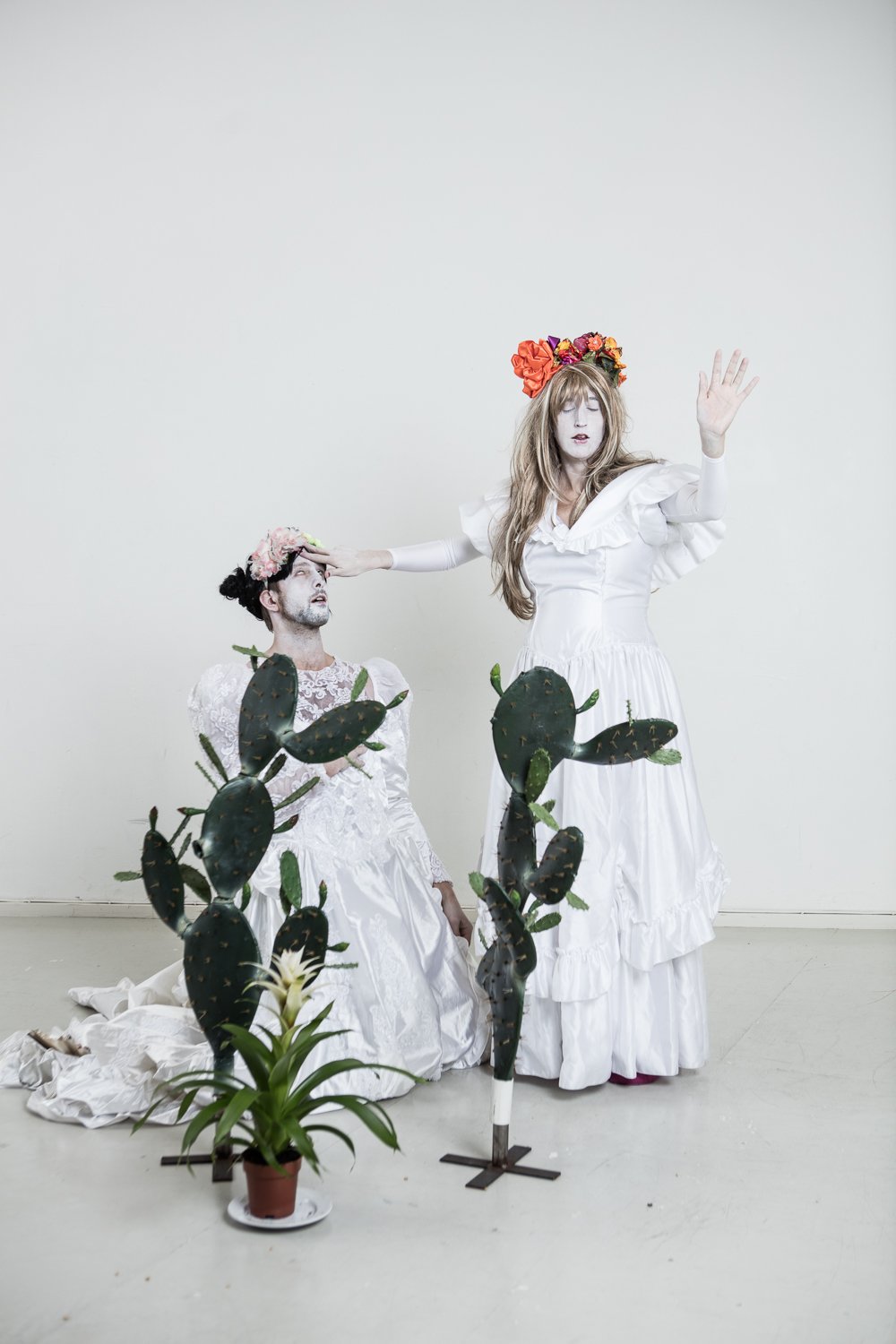
I Cloni
I CLONI is the edge where everything starts to dissolve but you keep on talking. All we can say for sure is that if there is life after death, it is just as mundane as life, maybe more intensively so. There will be more blood and screams than in any movie. Our feelings are too strong and too many. We believe in what can neither be seen or be kept at bay. We try to rattle the wails separating dreamers from the dead. Learn to appreciate life before you lose both your legs and learn the hard way.
Blue Motell
The performance is inspired by Bakthin and his book on Rabelais featuring the (idea of) the old carnival traditions and "the other life" of the people ( the carnival as something one lives), that we in the protestant north has precious little contact with, but a great need for. The performance becomes a living organism suggesting a different approach to impulse control and cruelty, the connection between ecstasy and cruelty being the main center point of both carnival and ecstatic religion. The show problematizes the longing for belonging to or giving oneself over to a group or event, and the conflicting need for control
